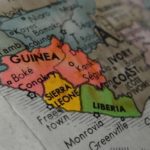UN: More Disaster Risk Management Funds
The United Nations released its 2015 Global Assessment Report on Disaster Risk Reduction (GAR15) last week along with a request for more international investment toward a global disaster risk management fund.
According to the yearly report’s findings, disaster losses worldwide average $250 billion to $300 billion annually. The report also stated that a $6 billion investment every year over the next 15 years would result in $360 billion in avoided losses over the same timeframe.
“For many countries, that small additional investment could make a crucial difference in achieving the national and international goals of ending poverty, improving health and education, and ensuring sustainable and equitable growth,” the GAR15 report said.
The report also stated that the majority of world governments are too focused on managing disasters instead of addressing the underlying factors — including poverty, poor urban planning, and lack of building codes — that make disasters more catastrophic.
“(G)rowing global inequality, increasing exposure to natural hazards, rapid urbanization and the overconsumption of energy and natural resources threaten to drive risk to dangerous and unpredictable levels with systemic global impacts,” UN Secretary-General Ban Ki-moon warned.
Liberia’s Last Ebola Patient Released from Treatment
After 16 days in a Chinese Ebola unit in Monrovia, Liberia’s last known Ebola patient was released on March 5 after being successfully treated. The news of her release came as Liberia went a week without a new confirmed Ebola case, the first time that’s happened since May 2014.
If there are no new confirmed cases of Ebola in Liberia as of April 3, the country could be declared Ebola-free.
Beatrice Yardolo, 58, was infected after three of her children had died from Ebola earlier. The family caught Ebola from Beatrice’s son, who was working in a treatment clinic.
The World Health Organization said almost 24,000 people were infected in the largest Ebola outbreak in history. The infection has killed more than 9,700 people, including more than 4,100 in Liberia.
Two BLU-MED Response Systems® Mobile Field Hospitals with Ebola Isolation Units were used on the front line of the battle against the outbreak in the Liberian capital of Monrovia.
Ebola Outbreak a ‘Wake-Up Call’ for World’s Health Systems
A recent Save the Children report warns that almost 30 countries are in jeopardy of suffering an Ebola-style epidemic that could affect millions of children.
The group’s ‘A Wake Up Call: Lessons from Ebola for the World’s Health Systems’ report found that 28 countries have weaker medical defense systems than the three West African nations — Liberia, Guinea and Sierra Leone — considered to be the outbreak’s epicenter.
“The world woke up to Ebola but now people need to wake up to the scandal of weak health systems, which not only risk new diseases spreading, but also contribute to the deaths of 17,000 children each day from preventable causes like pneumonia and malaria,” the report noted.

